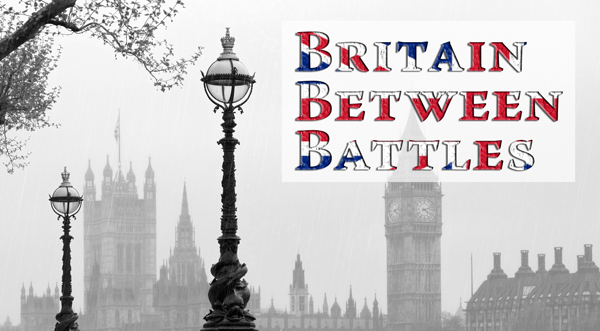I will not cease from Mental Fight,
Nor shall my Sword sleep in my hand:
Till we have built Jerusalem,
In England’s green & pleasant Land.
From Jerusalem, by William Blake (1804) set to music by
Sir Charles Hubert Hastings Parry in 1916, orchestrated by Sir Edward Elgar c.1922
The title of the first of our two Fitzgerald Theater Winter Concerts refers to the three works written coincidentally in the time immediately following the First World War into the Roaring Twenties. Sir Arthur Bliss Quintet for Oboe and String Quartet (1927), Sir Arnold Bax Sonata for Viola and Piano (1923) and Sir Edward Elgar’s Piano Quintet in A Minor, Op. 84 (1918-9). The title might just as easily refer to other battles, musical and aesthetic, raging between Paris, Vienna, and New York over the future of music: between the progressives and nostalgiacs, among Impressionists, Expressionists, Primitivists and Jazz lovers, and those for whom it all seemed headed for an atonal Apocalypse! It is possible that each of these works enjoys an important place in today’s chamber music canon because of the way in which they embody English ‘remove’ from the obvious battles of the day in favor painting portraits evoking character and place.
Commissioned by preeminent oboist Léon Goosens and the Venetian String Quartet from Mrs. Elisabeth Sprague Coolidge, Quintet for Oboe and String Quartet is a virtuosic work in three movements that treats all instruments as equals and evokes both the pastoral and folk elements of British country life. The oboe is allowed to be many things from sensuous siren to playful bagpipe over a wide range of tone and character. In that way it is a masterpiece.
Arnold Bax’s Sonata for Viola and Piano was written for Lionel Tertis, who is celebrated today as the premiere solo violist and commissioner of the great British viola music. His three-movement work, both atmospheric and virtuosic for both players, seems to emerge from and return to the mists and legends of time with a flavor of the Celtic literature that captivated its poet-composer.
Edward Elgar’s Piano Quintet, one of few major chamber works he created, came late in his output after earning wide recognition for the orchestral ‘Enigma’ Variations Op. 36, the oratorio The Dream of Gerontius Op. 38, various Pomp and Circumstances Marches, Op. 39, and the Op. 61 Violin Concerto written for Fritz Kreisler.
Elgar’s Piano Quintet is the only work on this program that can trace its origins to a work from the German Romantic tradition. It is from the Robert Schumann’s Quintet, the very first for these forces, that Elgar seems to have drawn inspiration and idea for how to score piano with string quartet. Following the slow introduction the movement of all parts in rhythmic unison bears more than a passing resemblance. From there it evokes scenes and feelings found nowhere else in better-known chamber music. One of these (the second theme) may be heard as musical nostalgia for the Raj, Britain’s longing for Empire; another evokes the dramatic rumble of a cathedral organ in several interludes of chord clusters over a deep bass. (Elgar diligently studied church organ music). The slow movement evokes the pastoral English countryside with a beautiful viola solo. The third and final movement begins without break with melody that is undeniably patriotic in bearing. Elgar prepares to end of this movement with a jaunty, strutting rhythm which he marks Grandioso!! That’s as close as he gets to actually bringing on the military band.
Enjoy,
Marcus Thompson


Hi – did any of this concert get posted to YouTube or elsewhere? The last full live Elgar’s Piano Quintet is quite a few years old.